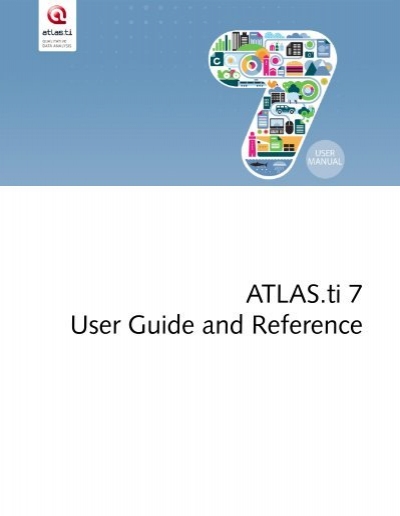

Quotations are segments of texts connected to one or more codes. It is possible to export ATLAS.ti project, which allows you to share documents, codes and memos with other people or store it for archival.įor Windows, open the File-menu and choose Export.įor Mac, open the Project menu and choose Export.Ĭoding takes place through selecting segments of the text to create an quotation.

However, do note that any changes made to the documents in ATLAS.ti (fixing typos, anonymisation, coding) is not reflected back to the raw data files.

pdf).įor interview materials, I recommend using Microsoft Word as these files can be edited e.g.
#Atlas ti 8 download portable#
rtf) or even in Portable Document Files (. In ATLAS.ti, data is organised into documents corresponding a single piece unit of data, such as an individual interview.ĭata can be in various formats, such as in Microsoft Word (. Importing documentsĪfter creating the project, you need to import your data into the project. Ideally, this corresponds to a cohesive set of materials used within a single paper or single documents. Project corresponds to a set of materials related to your research project, for example all interview materials for your collection. Starting to use ATLAS.ti Installing the software AffiliationĪfter starting ATLAS.ti, you first need to create a new project. It specially excels in open coding, i.e., attaching interpretations and concepts to the material during the analysis stage. ATLAS.ti is one of many software available to assist with qualitative analysis.


 0 kommentar(er)
0 kommentar(er)
